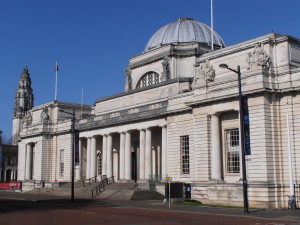Referring to Director General, Tony Hall’s admission in 2014 that the BBC’s English language service ‘from and for Wales’ is inadequate in certain television genres, Anderson maintains that ,
‘Tony Hall neatly put the onus on us, his audience. Rather than offering us a clear and frank analysis of the reasons why Network BBC has failed Wales in so many important ways, and outlining a plan for change, he made monopolistic claims for the BBC’s current contribution to national life. In effect, he was saying we should be grateful for what London chooses to give us, and not complain.’
Anderson claims that a deeply embedded London-centric vision dominates cultural networks. In his experience those at ‘the Centre’ show consistent prejudice against, and assumptions about, cultural life ‘beyond their own cultural and artistic horizons’.
‘We are in the second decade of the 21st century, but we still operate with a highly centralised, nineteenth century, semi-colonial model for the arts – one which assumes that London is synonymous with excellence, and that to fund London is to serve Wales, Scotland, Northern Ireland and the regions of England.’
He sees evidence of this in the BBC’s attitude to Wales,
‘It is now nearly two decades since Wales voted for devolution, including the transfer of responsibility for culture to the Welsh Government. The BBC could have played a constructive role in this change. Instead, its attitude to Wales demonstrates how limited and ill-considered that transfer of power and decision-making has been…
We in Wales should give full credit to the BBC for its significant investment in Roath Lock and its drama productions, which have given a great boost to our creative economy. But BBC Wales – unlike its equivalents in England and Scotland – does not have a Centre of Excellence in the arts… This reality undermines the principle, embedded in law, that culture is a devolved responsibility. We lack the voice that Tony Hall claims we have.’
Coming up to the minute he criticises the BBC’s Charter review document, BBC: British, Bold, Creative which he asserts,
‘proposes nothing specific to address the deficiencies in Network BBC’s representation of Wales. Without additional funding, it says, the BBC cannot increase net expenditure in the Nations. So nothing will change.
Is this a deliberate choice, based on a cold analysis that the BBC’s interests during the negotiations on the renewal of its Charter lie with Westminster, not Cardiff, Edinburgh or Belfast?’
But the most important part of his article is the conclusion he reaches after clearly delineating the interdependence of cultural structures,
‘The cultural infrastructure of any nation is an ecosystem, made up of a number of mutually dependent parts. As well as arts and cultural institutions, these include the print and broadcasting media, the Lotteries and other public and private funders, the education sector, the tourism industry and – last but not least – the creative industries and creative professionals.’
If culture is this web of connections, important not only in its constituent parts but also for how it helps to hold society together, why have cultural organizations in Wales been so slow to act in a united way in relation to the BBC?
‘Why then are we so polite? Why do the arts organisations in Wales not unite to demand better?’
Why indeed? It’s a rhetorical question because he finds no good reason against a concerted demand for more.
The media of Wales are not disconnected from the arts. Their raison d’etre is to circulate the life of the country, including its arts – its dance, theatre, fine art, literature, crafts, music, animation… Media practice is an art in itself, at the service of the arts, not something separate from them.
In relation to the BBC in Wales the time for that concerted demand has arrived.
